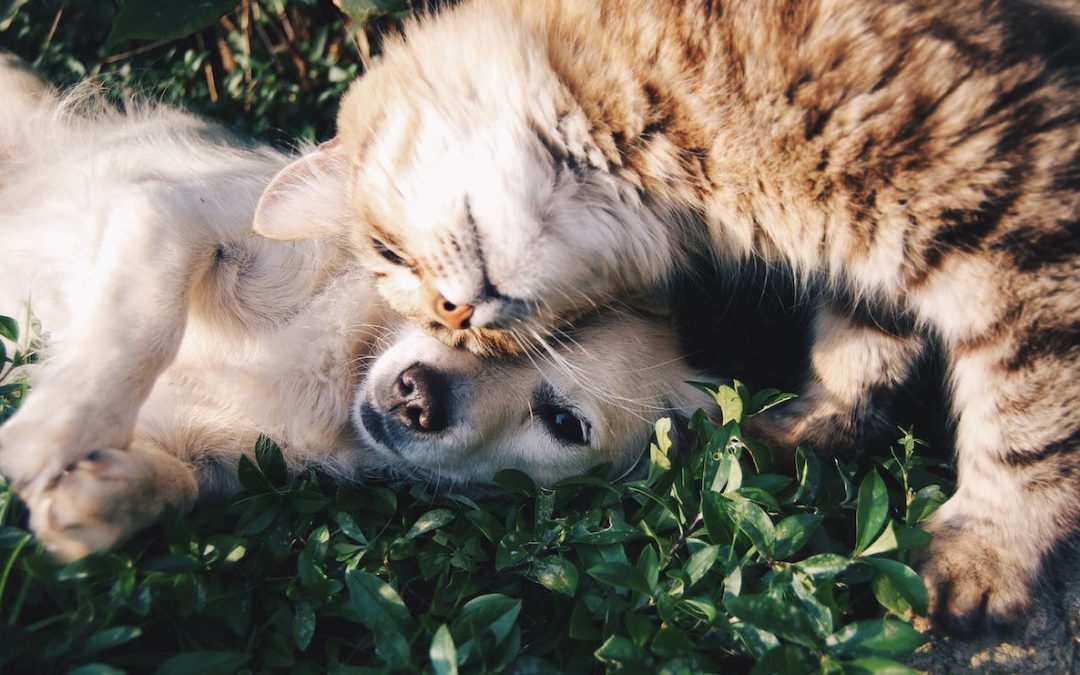Our pets are beloved members of our families, and their health and well-being are of utmost importance. As responsible pet owners, we must watch our furry friends and recognize the signs of illness. Dogs and cats, just like humans, can experience various health issues, and early detection is key to ensuring prompt medical attention and effective treatment. Let’s explore the common signs of illness in dogs and cats, enabling you to better understand and address potential health concerns.
Signs of Illness in Dogs
Being naturally active and energetic animals, dogs may sometimes hide signs of illness. As a pet owner, you need to be attentive and look out for the following indications that your dog might not be feeling well:
Changes in Appetite
A sudden loss of appetite or a significant increase in food consumption can indicate an underlying health issue. If your dog’s eating habits change significantly, it is advisable to consult a veterinarian.
Weight Loss or Gain
Unexplained weight loss or gain can be a red flag for underlying health conditions, such as metabolic disorders, organ dysfunction, or cancer. Regularly monitoring your dog’s weight can help identify any abnormal fluctuations.
Lethargy and Lack of Energy
If your dog becomes unusually lethargic or lacks interest in activities they previously enjoyed, it may indicate an underlying health problem. Dogs are typically energetic, so a significant decrease in energy levels should be taken seriously.
Changes in Behavior
Any notable changes in your dog’s behavior, such as increased irritability, aggression, anxiety, or confusion, should be carefully observed. These changes can be indicative of physical or emotional distress.
Breathing Difficulties
Labored breathing, coughing, wheezing, or rapid breathing can be symptoms of respiratory problems, heart disease, or other serious conditions. If your dog experiences any breathing difficulties, seek veterinary attention promptly.
Digestive Issues
Frequent vomiting, diarrhea, or constipation should not be overlooked. Various factors, including dietary indiscretion, allergies, infections, or gastrointestinal disorders, can cause these symptoms.
Skin and Coat Problems
Dogs with dull, dry, or flaky skin, excessive hair loss, itching, or inflammation may suffer from allergies, parasites, infections, or dermatological conditions. Pay attention to changes in your dog’s skin and coat, and consult a veterinarian if necessary.
Changes in Urination
An increase or decrease in urination frequency, excessive thirst, blood in urine, or difficulty in urinating can indicate urinary tract infections, kidney problems, or other urinary disorders.
Signs of Illness in Cats
Cats are known for their independent nature but are not immune to health problems. Cats may exhibit subtle signs of illness, making it crucial for owners to be vigilant and watch for the following indications:
Changes in Eating Habits
Cats are usually enthusiastic about mealtime. If your cat suddenly refuses to eat or shows a decreased appetite, it may signal an underlying health issue. Conversely, increased food consumption may also be a concern.
Weight Changes
Significant weight loss or gain in a cat can indicate various health problems, including hyperthyroidism, diabetes, or gastrointestinal issues. Regularly monitoring your cat’s weight is essential for early detection.
Increased Sleeping and Lethargy
Cats are known for their love of sleep, but excessive sleeping or prolonged periods of lethargy may indicate an underlying health condition. Pay attention to any changes in your cat’s energy levels and activity.
Behavioral Changes
Cats are creatures of habit, so any noticeable alterations in their behavior should be investigated. Aggression, irritability, hiding, excessive vocalization, or disinterest in usual activities may be signs of distress or illness.
Urinary Issues
Frequent urination, straining in the litter box, urinating outside the litter box, or blood in the urine may indicate urinary tract infections, bladder stones, or kidney problems. These issues can be serious and should be addressed promptly.
Respiratory Problems
Cats with persistent coughing, sneezing, wheezing, or difficulty breathing may suffer from respiratory infections, allergies, asthma, or other respiratory conditions. Immediate veterinary attention is necessary for such symptoms.
Oral Health Problems
Bad breath, drooling, difficulty eating, swollen gums, or oral ulcers can indicate dental or other oral health problems in cats. Regular dental care and check-ups are essential for maintaining their overall well-being.
Changes in Litter Box Habits
Any changes in your cat’s litter box routine, such as increased or decreased urination or defecation, straining, or producing smaller or larger stools, should not be ignored. These changes can be indicative of gastrointestinal or urinary issues.
Final Thoughts
Recognizing the signs of illness in cats and dogs is a vital responsibility for pet owners. By being observant and attentive to changes in behavior, appetite, energy levels, and bodily functions, you can play a crucial role in identifying potential health problems early on.
Remember, regular veterinary check-ups are essential for maintaining the well-being of your furry companions. Prompt medical attention and appropriate treatment can significantly affect the prognosis and overall quality of life for your beloved pets. Stay vigilant, keep a watchful eye, and prioritize the health and happiness of your four-legged friends.
If you need additional support or a break from handling your furry buddy, remember the trusted expertise of Belltown Dog Walker, the go-to dog walkers in Seattle. They understand the unique needs of dogs and cats and can provide the exercise, care, and attention they require, allowing you to have peace of mind.
To learn more about Belltown – The Seattle dog walkers and our range of services, get in touch with us. We look forward to being your trusted partner in caring for your furry companion.

